Women's History Month
In celebrating “Women’s History Month,” we turned to some of the women of the ILP to shed light on Native women legal professionals and advocates in this Progress, Power, Purpose series. Indian Legal Program Faculty Director, Indian Legal Clinic Director and Professor of Law at ASU Law Patty Ferguson-Bohnee is of the Pointe-au-Chien tribe from Louisiana. In addition to teaching, this formidable force is most known for her continued work on the Arizona Native Vote Election Protection Project, which did Indian Country a great service in the 2020 presidential election, moving closer to a democracy that honors and values Native voters. While the pandemic was not an ideal circumstance, Native Vote took to digital media by storm with interviews, trainings, presentations, collaborations and most notably, the newly created Polling Locator Tool. Read more in Arizona Native Vote Changemakers.
When she’s not leading the charge in Native Vote, Patty is preparing students in her Indian Legal Clinic and promoting diversity and inclusion.
Q: What does your current position entail?
A: I serve as the Director of the Indian Legal Clinic and Faculty Director of the Indian Legal Program at the Sandra Day O’Connor College of Law at ASU. I am so blessed to be able to work with leading scholars and practitioners in Indian law and Tribal law and motivated students who really care about serving Indian Country. In the Indian Legal Clinic, the students practice under my bar license. We work on matters in tribal, state, federal, and international forums. The cases range from probate, family, criminal and civil litigation, voting rights, code drafting, environment, climate, and status clarification of tribes. My goal is that the students learn useful practical skills and develop a passion for service, while also serving unmet needs for Indian Country.
Q: Were you always interested in this kind of work?
A: I became interested in law when I participated in mock trial in high school. However, I became interested in Indian law as an undergraduate student. I was able to take a Federal Indian Law class as a freshman, and I never looked back.
Q: What advice do you have for Native American women who want to work in this area?
A: The sky is the limit! Although Native American women are the most underrepresented group in the legal profession, Native American women are doing phenomenal work. Keep in touch with your law school classmates and build a community of support. Join your local Native American Bar Association and the National Native American Bar Association.
Q: What is your proudest career moment?
A: Assisting Four Louisiana Tribes in securing state recognition.
Q: Is there anything you’ve learned after graduating law school that you wished you learned in class?
A: Many law students do not learn that there are three sovereigns—the state, the feds, and tribes. While this might not be harmful in some states, in the southwest, it could lead to malpractice. It also means that as Native lawyers and practitioners of tribal law and Federal Indian law, we are always teaching—the judges, opposing counsel, co-workers, clients, and others. At ASU, it is great to have Indian law professors teach first year courses so that they can provide this lens in which to analyze the law. It makes us all better attorneys and advocates. Everyone should learn Indian law basics because it transcends all areas of law.
Q: What is the most valuable lesson you learned in the classroom that has helped you in your career?
A: I took a few practical courses that served me well. One was environmental litigation, which included drafting briefs and an appellate argument. The other was mediation clinic, which taught me to listen and provided me tools to help resolve disagreements.
Q: Who are three Native American women law professionals and/or advocates who should be on our radar right now?
- Hilary Tompkins: a strong Native American woman, a leader, the first Native American to serve as the Solicitor of the Interior, and someone who has remained humble and genuine. She is expanding her knowledge base and using this an opportunity to rethink and reframe Indian law issues. She gave a thoughtful and powerful lecture at last year’s annual Canby Lecture, and I appreciated the time she spent with our students.
- Deb Haaland: If confirmed, Deb Haaland will be the first Native American ever appointed to a cabinet position. Her views on climate change are important to the future of Tribal communities, and the whole country.
- Doreen McPaul (’01): Doreen has served in numerous positions – academia, private law firms, tribal in-house counsel, counsel to tribal leadership, and now, Attorney General of the Navajo Nation. Through this journey, she has volunteered, served on numerous boards and bar leadership, speaks on numerous panels, and coordinates educational programs about Indian law and tribal law. She is also the president and founding board member of the Tribal In-House Counsel Association – a much needed forum to support tribal in-house attorneys and advocates.
Review Patty’s publications:
- Received the American Bar Association’s 2020 Spirit of Excellence award
- “How the Native American Vote Continues to be Suppressed” article published in the ABA Vol. 45, No. 1: Voting Rights.
- Co-authored with James Tucker article “Voting During a Pandemic Vote-By-Mail Challenges for Native Voters”
- “The History of Indian Voting Rights in Arizona: Overcoming Decades of Voter Suppression” SSRN article
- “The Impacts of Coastal Erosion on Tribal Cultural Heritage” article published in the SSRN.
Stay tuned for our next Progress, Power, Purpose series.
________
Danielle Williams
Program Coordinator, Indian Legal Program, ASU Law

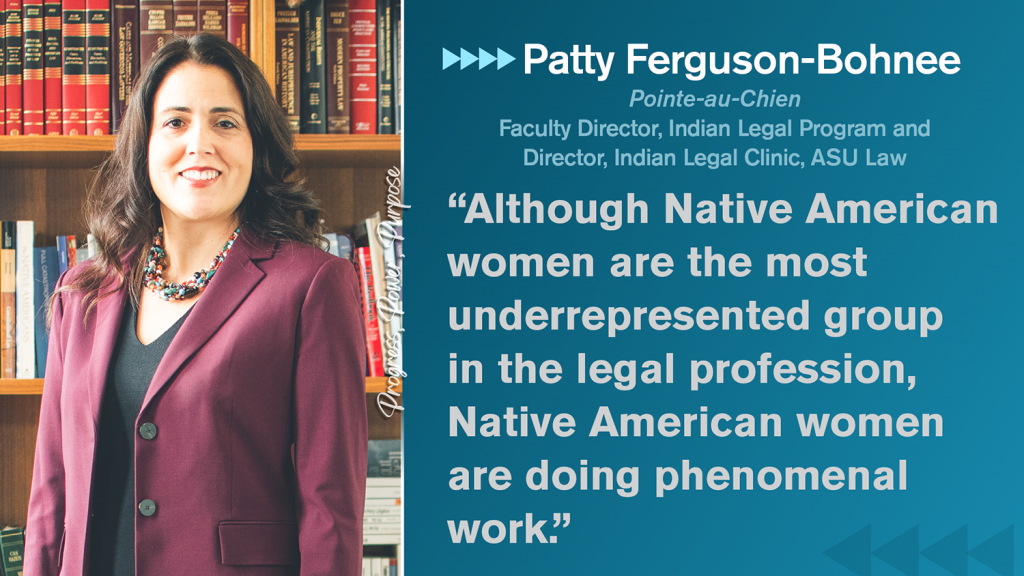
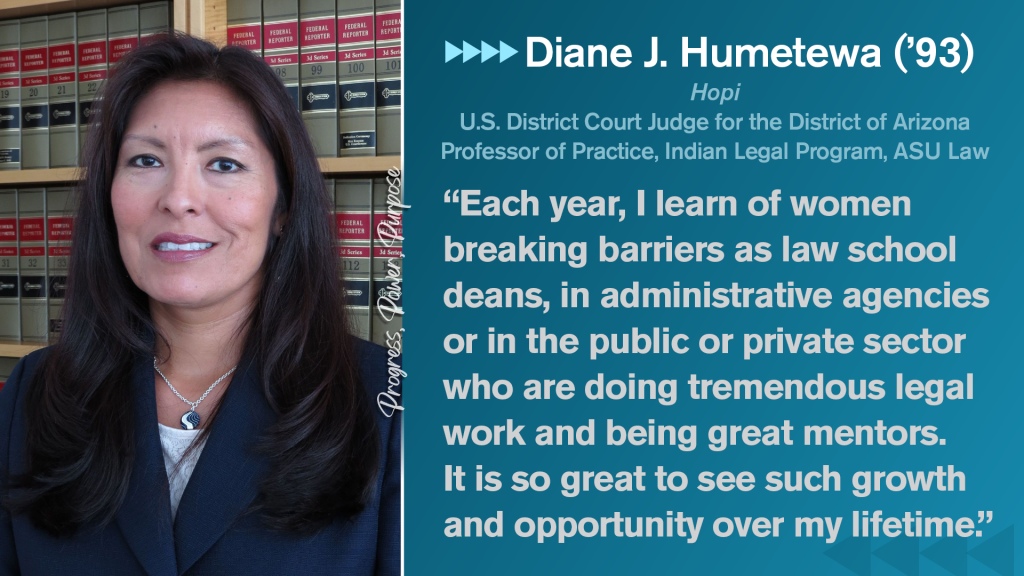
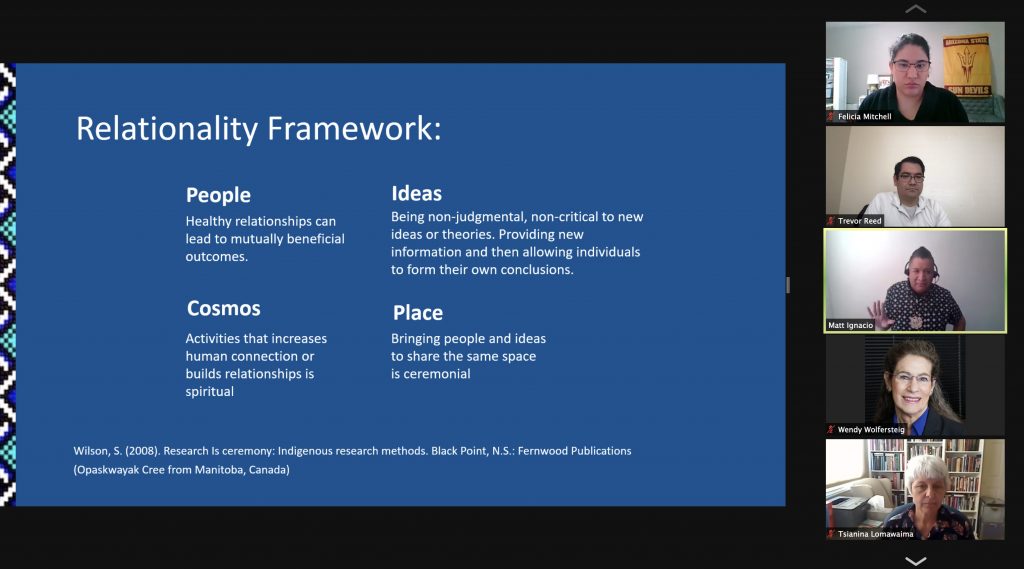
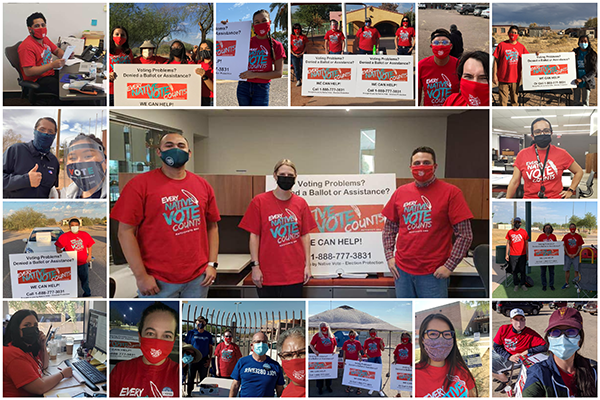
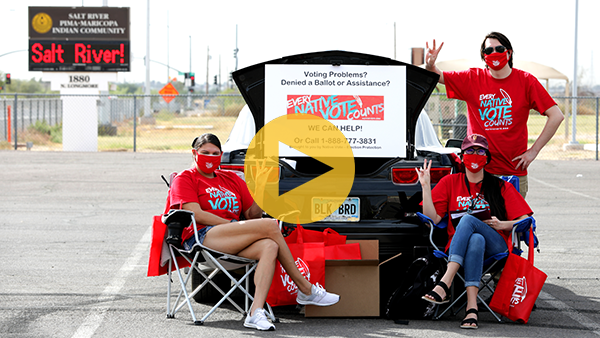
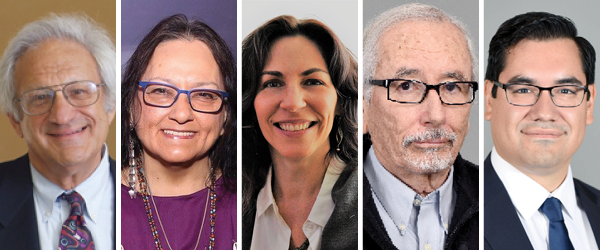










 There
There


